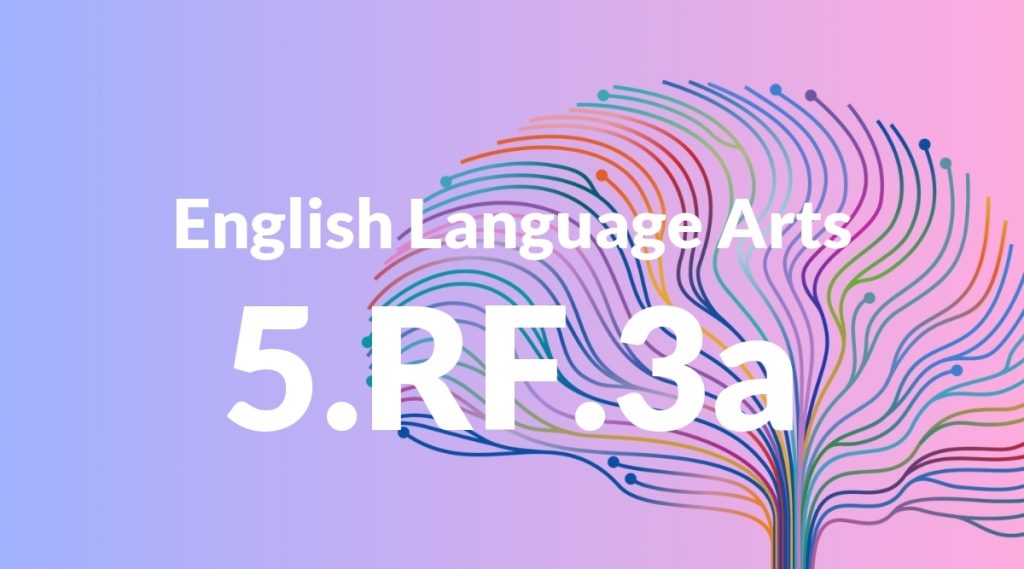Standard: 5.RF.3 – Know and apply grade-level phonics and word analysis skills in decoding words.
Grade level: Grade 5
Subject: English Language Arts
Domain: Reading: Foundational Skills
Teacher Overview
This standard focuses on ensuring that students in Grade 5 can apply phonics and word analysis skills to decode words. This is crucial as it forms the foundation for reading fluency and comprehension. Mastery of this standard will enable students to tackle more complex texts and enhance their overall literacy skills. Students should have a solid grasp of basic phonics and simple word analysis skills, including recognizing common phonemes and understanding prefixes and suffixes.
Mastering this standard will prepare students to read more complex texts with greater fluency and comprehension, and apply their word analysis skills across different subjects.
Common Misconception 1
Some students may think that phonics and word analysis are only for decoding simple words. This is incorrect because these skills are essential for understanding and decoding more complex and unfamiliar words in various contexts.
Intervention 1
Use diverse texts from subjects like science and social studies to show how phonics and word analysis help in decoding complex vocabulary. Provide practice opportunities with these texts.
Common Misconception 2
Another common misconception is that once they know a word, further analysis is unnecessary. This is incorrect as continuous analysis helps deepen understanding and expand vocabulary.
Intervention 2
Encourage ongoing word analysis by incorporating activities that require students to break down and analyze familiar and unfamiliar words regularly.
Prerequisite Knowledge
Students should have a basic understanding of phonics, including the ability to recognize common phonemes and decode simple words. They should also be familiar with basic word analysis skills such as identifying prefixes and suffixes.
Subsequent Knowledge
After mastering this standard, students will be able to read more complex texts with greater fluency and comprehension. They will also be able to apply their word analysis skills to understand and decode multisyllabic words and unfamiliar vocabulary across various subjects.
Instructional Activities
- Phonics and word analysis worksheets
- Reading and decoding unfamiliar words in context
- Word root and affix exploration
- Interactive decoding games
- Group reading sessions with complex texts




